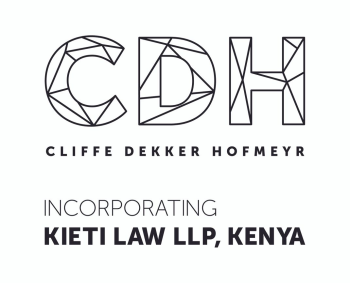Example 1 Example 2 Example 3 Interpretation note Comment
On December 19 2016 the South African Revenue Service (SARS) issued Interpretation Note 94, providing guidance on the difficult issue of accounting for tax following the assumption of contingent liabilities on the acquisition of a business as a going concern.
This matter is best discussed by way of examples.
The seller runs a toy shop and employs a manager and a sales person. It owns the shop building (valued at R60) and a stock of toys (valued at R30). It owes a supplier R15.
A buyer wishes to purchase the business as a going concern. The price of the business (ignoring factors such as goodwill) is R90 (ie, R60 for the building and R30 for the stock). The buyer pays the price in cash. It does not assume the obligation to pay the supplier.
The seller must account for:
- income tax on the amount attributed to the stock (R30); and
- capital gains tax (CGT) on the amount attributed to the building (R60).
The seller must then settle with the supplier.
The buyer may deduct for income tax purposes the amount attributed to stock. The amount attributed to the building is the base cost of the building for CGT purposes, which is the buyer's responsibility.
The facts are the same as in Example 1. However, instead of paying the full price in cash, the buyer assumes the liability to pay the supplier (R15) and pays the balance of the price (R75) in cash.
The buyer and seller must account for tax as they would under Example 1. The buyer is not allowed a further income tax deduction when it pays the supplier.
The facts are the same as in Example 2. However, the seller must also pay the manager a bonus of R20 in two years' time if the manager has met certain sales targets. The buyer must take over this obligation.
If the seller had not sold the business, it would have been able to deduct the amount for income tax if and when the manager met the sales target.
According to SARS's interpretation note, the parties in Example 3 must account for tax as follows:
- The seller must account for income tax or CGT on the amount of the agreed value of the obligation, depending on whether the amount is attributed to the stock or the building.
- The seller incurs no expenditure for the assumption of the buyer's obligation and therefore may not deduct the liability for income tax.
- The buyer will incur expenditure only when the obligation materialises (ie, when the manager meets the sales targets). The assumption of the obligation relates to the building and stock acquired. As such, when the obligation materialises, the buyer must:
- claim an income tax deduction (to the extent that the assumption of the obligation is attributed to stock); and
- add the amount to the base cost of the building for CGT (to the extent that the assumption of the obligation is attributed to the building).
However, it could be argued that SARS is conflating:
- the buyer's obligation to pay the price; and
- the way in which the buyer settles this obligation.
In Example 3, the buyer incurred an obligation to pay the seller the aggregate amount of R90 (ie, R60 for the building and R30 for the stock). As such, the buyer incurred an expense of R90. The buyer settled the price partly in cash and partly by the assumption of:
- the fixed liability to pay the supplier; and
- the contingent liability to pay the manager the bonus if and when the sales targets are met in future.
The fact that the buyer will settle the price in this way does not change the fact that it has incurred the aggregate amount of the price, as the buyer has taken over the seller's obligation.
On this argument, the buyer and seller could account for tax in the same way that they accounted for tax in Examples 1 and 2:
- the seller accounts for:
- income tax on the amount attributed to stock; and
- CGT on the amount attributed to the building; and
- the buyer:
- may, at the time of the transaction, deduct for income tax the amount attributed to stock; and
- must add the amount attributed to the building to the base cost of the building for CGT purposes.
When the obligation to pay the manager becomes fixed (ie, when the manager meets the sales targets) the buyer should not be able to deduct the expense at that time.
Parties should proceed with caution when structuring sale of business agreements, as it is likely that SARS will adopt the position set out in its interpretation note.
For further information on this topic please contact Ben Strauss at Cliffe Dekker Hofmeyr by telephone (+27 21 481 6300) or email ([email protected]). The Cliffe Dekker Hofmeyr website can be accessed at www.cliffedekkerhofmeyr.com.
This article was first published by the International Law Office, a premium online legal update service for major companies and law firms worldwide. Register for a free subscription.



